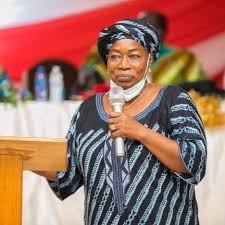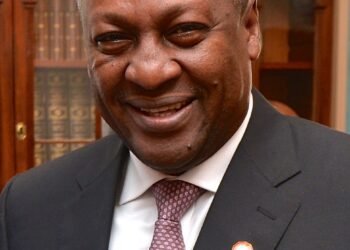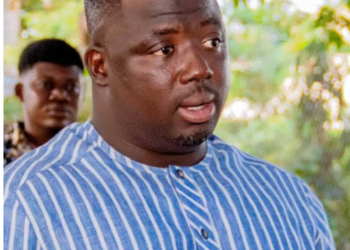Once again, Ghana’s 1992 Constitution—hailed as a historic document that marked the beginning of the Fourth Republic—is being questioned.
This time, from a leading constitutional scholar in the nation, the executive director of the Ghana Centre for Democratic Development (CDD-Ghana) and chairman of the Constitution Review Committee is Professor H. Kwasi Prempeh.
In a thorough and persuasive statement, the esteemed legal scholar expressed serious concerns about the document’s structural defects, especially those resulting from what he called “cut-and-paste borrowing” from the nation’s previous constitutions.
Professor Prempeh traced the history of Ghana’s constitutional design from the Second Republic’s 1969 Constitution to the current 1992 Constitution in a thorough historical analysis.
Although the 1969 Constitution was based on a Westminster-style parliamentary system, he pointed out that its impact on subsequent presidential constitutions—particularly those of 1979 and 1992—was greater than is frequently realised.

He contended, however, that the inadvertent transfer of institutional frameworks from a parliamentary to a presidential system has resulted in repercussions that currently jeopardise the efficacy, equilibrium, and democratic well-being of Ghana’s governance structure.
“The 1969 Constitution’s President’s role was that of a ‘statesman,’ not a politician. In terms of his specific functions, the President under the 1969 Constitution was to serve as the protector or guarantor of certain independent constitutional bodies and offices created by that Constitution, among them the judiciary, the electoral commission, and the ombudsman.”
Professor H. Kwasi Prempeh
During the 1969 Republic, the Prime Minister was in charge of the nation’s actual governance. Professor Prempeh asserted that this arrangement was purposefully created to shield the presidency from the partisan battle, giving the officeholder the moral authority required to defend important constitutional institutions such as the ombudsman, the electoral commission, and the judiciary.
However, Professor Prempeh claimed that this careful plan was dropped when the 1979 and 1992 Constitutions took effect, making the President the dual head of state and government.
“The 1992 Constitution retains for this Executive President roughly the same roles and functions assigned to the non-politician, statesman President under the 1969 Constitution.
“The result is a politician President cloaked with and exercising powers and functions that were originally intended for a non-politician, statesman President.”
Professor H. Kwasi Prempeh
He maintained that this combination of roles is more than just a theoretical oversight and has had a real impact on the robustness of checks and balances and democratic institutions.

All-Powerful Executive President
Today, the President leads a government in which he selects almost all high-ranking officials, including those who are supposed to act as impartial arbiters.
Professor Prempeh cautioned that the idea of institutional independence is threatened by this concentration of power, which also raises questions about political meddling.
The Council of State’s development is equally concerning. The Council, which was first envisioned in the 1969 Constitution as a politically balanced advisory body that included the Prime Minister, the Leader of the Opposition, and other notable statesmen, was meant to act as a bipartisan tool for directing presidential decisions.
However, Professor Prempeh pointed out that the 1992 Constitution’s Council of State has no official role for the opposition and is skewed heavily in favor of the President’s appointees..
“Rather, it is now a body dominated by appointees of the Executive President, though in a limited number of cases, such appointments must be made from a narrow pool of designated past officeholders.
“In effect, the 1992 Constitution’s Council of State loses the intentional, high-profile cross-party membership and balance that the presence of both Prime Minister and Leader of Opposition, as well as a past Head of State, lent to the 1969 Council of State.”
Professor H. Kwasi Prempeh
He claimed that as a result, the Council of State is “far weaker,” the presidency is “far more powerful,” and independent constitutional officeholders are “far less politically independent or secure” than what the 1969 constitutional arrangement had intended.
This misalignment, according to Professor Prempeh, is the result of “blind borrowing” as opposed to careful adaptation.

Without enough consideration for the reasoning and presumptions underlying their original design, Professor Prempeh decried that constitutional functions and institutional names were imported wholesale into a very different political and constitutional context.
“Thoughtful, history- and context-attentive constitutional interpretation could have helped correct some of the perverse outcomes. Alas, that has not been the case thus far.”
Professor H. Kwasi Prempeh
His criticism comes amid the formation of a Constitution Review Committee by the new government to oversee the process of revising Ghana’s 1992 Constitution.
The current framework in Ghana, according to many, does not adequately protect institutional autonomy or political accountability and concentrates too much power in the Executive.
Given that Professor Prempeh is both the chairman of Ghana’s ongoing constitutional review process and a renowned legal scholar, his observations are especially noteworthy.
His thoughts are anticipated to influence current national discussions regarding constitutional amendments and could have an impact on the conceptualisation of possible reforms.
READ ALSO: Government to Engage Transport Unions to Cut Fares




















